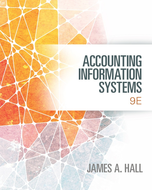Solution Found!
Enhancing Transparency with Discretionary Reporting
Chapter 1, Problem 5(choose chapter or problem)
Questions & Answers
QUESTION: What is discretionary reporting?
ANSWER:Step 1 of 2
Discretionary reporting refers to providing additional information or disclosures beyond what is legally required in financial reporting. It involves voluntarily including non-mandatory information in financial statements, footnotes, management discussions, or other accompanying reports to provide a more comprehensive and transparent view of an organization's financial position, performance, and risks.
While financial reporting standards and regulations guide what information must be disclosed, discretionary reporting exceeds these minimum requirements. It allows companies to provide additional details, explanations, or context that they believe would be useful to stakeholders in understanding the financial statements and making informed decisions.
Discretionary reporting offers several benefits. First and foremost, it enhances transparency and the quality of financial reporting. By voluntarily providing additional information, companies can provide a clearer picture of their financial health, strategies, and risk factors. This increased transparency can foster trust among stakeholders, such as investors, creditors, and regulators.
Second, discretionary reporting can help address the limitations and shortcomings of mandatory financial reporting requirements. While accounting standards ensure consistency and comparability, they cannot cover all specific circumstances or events relevant to a particular organization. Discretionary reporting allows companies to fill these information gaps and accurately represent their unique circumstances.
Watch The Answer!
Enhancing Transparency with Discretionary Reporting
Want To Learn More? To watch the entire video and ALL of the videos in the series:
Discretionary Reporting offers a deeper look into a company's finances beyond standard requirements. By voluntarily providing added details, it enhances transparency, aids stakeholders, and effectively communicates unique circumstances. But, companies must ensure consistency and uphold ethical practices
